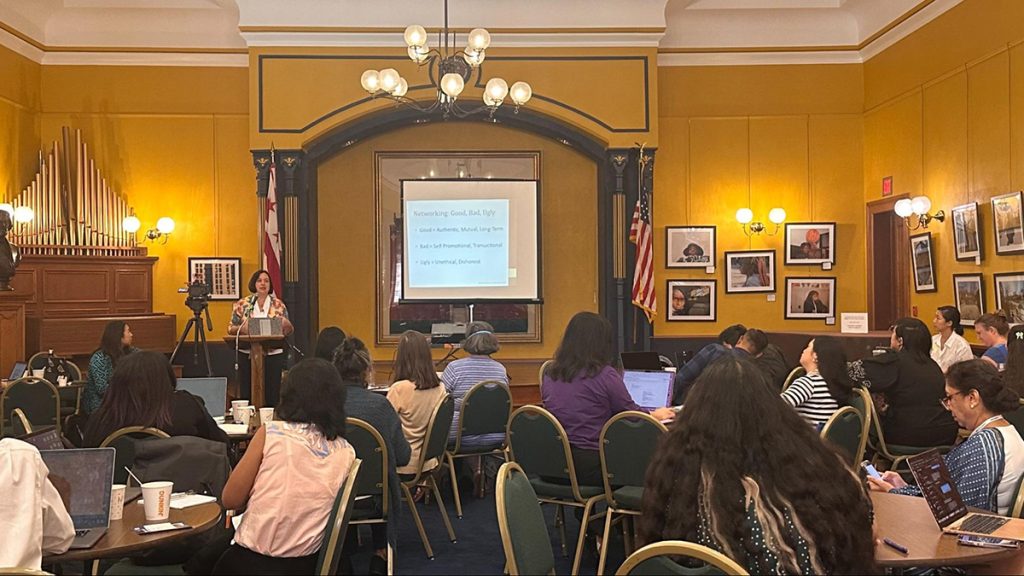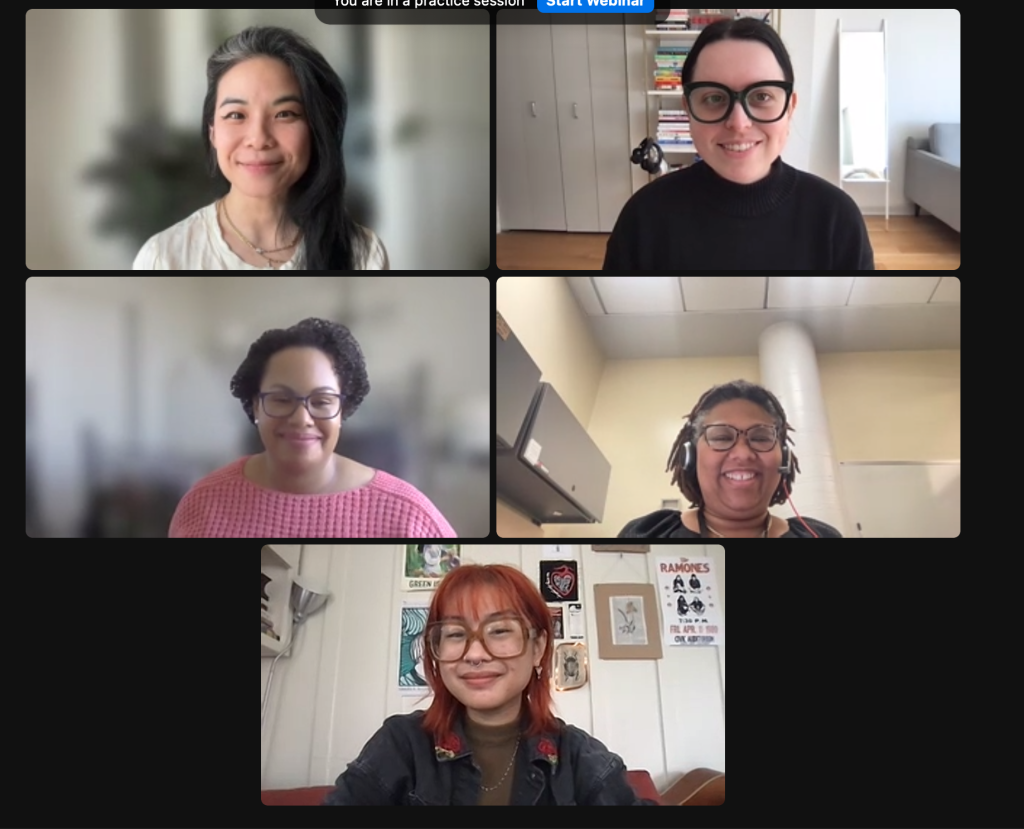
Katherine Reynolds Lewis presents at the Institute for Independent Journalists’ 2023 freelance business workshop during the Asian American Journalists Association’s convention in Washington D.C. (Photo courtesy of the IIJ.)
Why freelance journalism is the future
I’m going to help you start your independent journalism business
At least twice a month, I get a request from a former colleague or friend-of-a-friend who’s looking into being a freelance journalist. Maybe they experienced a layoff, or lost out on a promotion. They ask for a half hour on the phone, just to get started.
I’ve had the same half-hour conversation hundreds of times over the past 15 years that I’ve been a full-time freelance journalist. I often hear from these individuals again later with questions about what to charge for a project, how to negotiate contract terms, and where to connect with well-paying clients.
The pace of these kinds of requests has increased in the past 18 months, when 5,000 journalists experienced mass layoffs — nearly 10 percent of the U.S. journalism workforce. That’s on top of the 26 percent drop in journalism employment between 2008 and 2020. The Pew Research Center estimates that 34 percent of journalists currently work as freelancers.
At the Institute for Independent Journalists, which I founded to support freelancers of color, we expect to see a growing cohort of freelance journalists in the future. But while journalism schools and newsrooms offer many programs that prepare and lead emerging journalists into newsroom staff jobs, there are scant resources for figuring out how to make a living as a freelancer. And the first weeks can be overwhelming!
The immediate to-do items can seem endless, including:
- Collecting your portfolio, setting up a professional presence on a site and social media
- Creating a business name and structure, such as a limited liability corporation
- Reaching out to your network for leads on possible clients
- Developing and reporting story ideas that you can pitch to news organizations
- Putting together systems for tracking your projects, invoices and outreach
- Managing your time and setting immediate priorities
- Understanding your legal risks, licensing and tax obligations
- Learning about copyright laws, rates and contract terms for independent contractors — and how they differ from employees
For my Reynolds Journalism Institute fellowship, I will create an interactive guide that helps cut through the decision overload by offering bite-sized modules for navigating these choices and setting up your freelance business to be sustainable and successful.
I envision this resource beginning with you answering a few questions. Based on your particular situation, you’ll be given a suggested order by which to complete the training modules, each of which will move you further along the path to having a clear strategy, resources and plan for your freelance business.
This resource will also allow you to develop a customized set of spreadsheets that you can continue to use in your freelance businesses, to reach your financial and professional goals and adjust to any bumps along the way. Many local and community-centered newsrooms consist of just one or two full-time journalists, who essentially are running their own freelance practices. The guide will also be useful to them.

In order to be as relevant to as broad a range of independent journalists as possible, I would love to get input from other freelancers about what resources they are missing and where the gaps are in their knowledge base.
If you’re struggling through the start-up phase of freelancing I’d love to set up a call to hear about your challenges — and how the resource I build might be able to help.
Cite this article
Lewis, Katherine (2024, Aug. 7). Why freelance journalism is the future. Reynolds Journalism Institute. Retrieved from: https://rjionline.org/news/why-freelance-journalism-is-the-future/
